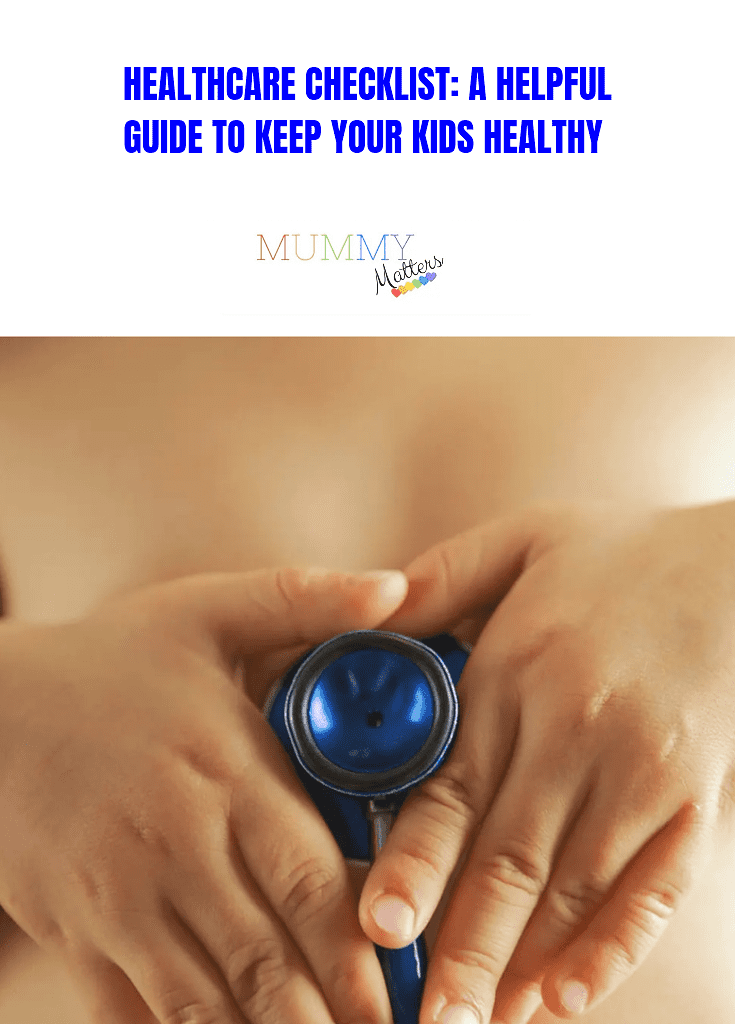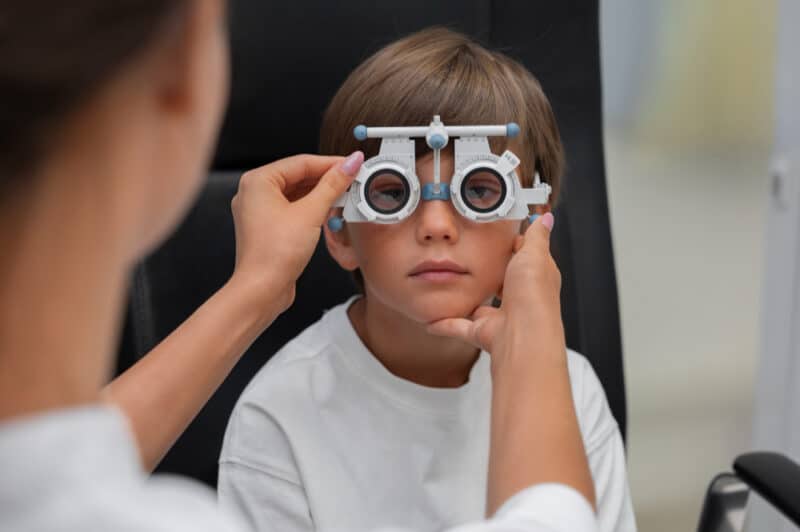Children have the most vulnerable bodies at risk of getting infected with various diseases. Similarly, germs, bacteria, and viruses are constantly in the air, and proper supervision and hands-on care from the parents only put them at a higher risk.
That’s why other early education is essential, and doing your part as a parent will help them stay healthy. Although there’s no guide to perfect parenting, you can try your best as their guardian. To help you with their healthcare, here are a few things that you can add to your checklist.
Regular Health Checks
Regular health checkups will allow you to be aware of your kid’s current condition. Since they’re still growing, it’s vital that you know if they’re developing healthily. If your healthcare provider finds some issues, they’ll be able to stop the progression of the disease.
In situations where quick documentation is required—such as for school enrolment, sports participation, or travel—accessing the best online medical certificate can be an efficient solution. These certificates provide parents with a convenient and reliable way to meet health-related requirements without unnecessary delays, particularly when in-person visits are not feasible
Aside from that, it can also reassure you as a parent about their development. The most common health checkup for children is the regular health checkup, where the healthcare providers check their Body Mass Index (BMI) and overall health.
Dental Checkup
First of all, the parent’s attitudes towards dental care can significantly affect the children’s dental health. In fact, 3.2% of children in the US experienced dental neglect in 2020 despite getting treatment recommendations from their school dentists.
Meanwhile, in Australia, six in ten Indigenous children experience tooth decay in their primary teeth, while only four in ten non-indigenous children experience the same. Fortunately, there are child-friendly clinics in the country, like Skygate Dental in North Brisbane.
On the other hand, countries like Europe and some parts of Asia don’t have a documented record of the related issue. Still, research has shown that physical neglect has a relative relationship with socioeconomic status and lifestyle factors. With this, you can understand that there can be various reasons for the neglect, but if you’re able and capable, this shouldn’t be an issue.
Vision Examination
A vision examination is part of an eye examination to determine if your child’s visual system is developing well. Little kids or toddlers can’t communicate yet. So, there’s no way for them to tell you they’re having any issues with their eyes. Some babies are born with an eye problem, and the only way that you’ll be able to know about it is when you visit a doctor.
Moreover, if your child already goes to school, it’s even more vital to receive a regular vision examination to help discover underlying eye issues they may have been experiencing. This is to also be able to provide a treatment to preserve their vision for a long-time if vision problems are detected.
Hearing Checkup
Another one of the necessary checkups that you should never skip is the hearing exams. Many studies have linked hearing loss to various conditions, such as heart problems and diabetes. Thus, you must prioritize your kid’s hearing health to determine possible hearing problems as early as possible.
Issues like this can affect their speech and language development, social skills, and education. If problems are found, you’ll be able to provide the necessary devices they will need, such as hearing aids, and enroll them in schools that are particularly for people with special needs.
Full Health Assessments
In addition to routine checkups, it’s sometimes helpful to get a more thorough assessment of your child’s overall health. Comprehensive health screenings can provide a deeper understanding of any underlying issues that might not be apparent during standard exams. These assessments offer peace of mind by helping you stay proactive about your child’s well-being.
One option to consider is a Whole Body MRI, which provides a detailed scan of your child’s internal health. This type of scan can detect potential concerns early on, giving you valuable insights that allow for timely intervention if needed. Knowing more about their health can help you make informed decisions as they grow.
Flu Shots and Other Age-Appropriate Immunizations
Flu shots are essential flu vaccines that you should be able to provide to your children. It’s because your children’s bodies and health are very delicate, and a simple change in the season might result in a flu illness and require admission to the hospital.
That’s also why doctors recommend letting your child get flu shots every year as early as six months old and getting them in the fall. Children ages six months through eight years old may require two doses for absolute protection.
Help Them Deal Properly With Stress and Anxiety
Aside from physical health, it’s essential to understand that mental health also matters. As your child grows old, they also develop, and both physical and mental health must be healthy. Moreover, the development stage can be challenging for them, but being mentally healthy during childhood is a significant developmental and emotional achievement for children, including determining how to cope with undesired emotions properly.
Since they are still young, you must be patient when engaging with them. They might find it hard to express what they’re currently feeling, and the only way they can inform you about their uncomfortable feeling is through crying, sulking, tantrums, and sudden changes in emotion.
Provide Good Nutrition
Above all, you must be able to provide your child with proper nutrition and create a habit of eating nutritiously. Aside from its entailing benefits, providing good nutrition can help them boost immunity and grow healthy. If necessary, you can start by writing down a nutrition plan and a menu. You can seek the help of a nutritionist or a healthcare provider to guide you.
A healthy breakfast must at least have protein, whole grains, and dairy. While lunch can include lean meats on top of fruits and vegetables, and for dinner, you can choose foods that can help ease fatigue and improve your mood.
Final Thoughts
Health is wealth, and the best way to keep your child healthy is to start providing them with the healthcare and care they need while they are young. Health issues only worsen when left untreated, and sometimes other diseases manifest while they are still kids. Their body is still developing, so they will need all the help and care they need as they grow. If you’re a new parent, you can prepare your checklist with the helpful guide above.




